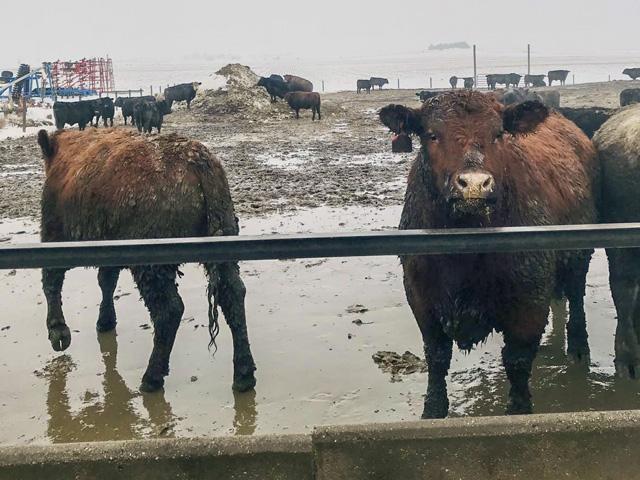Sort and Cull
Declining Carcass Weights Encourage Higher Cash Cattle Prices
Last week was an absolute powerhouse of a market for the cattle complex. Cash cattle prices traded higher, the board was actively supported, feeder cattle traded higher, the week's slaughter was aggressive and, truthfully, there wasn't much that wasn't supportive of the cattle complex.
What I found especially interesting was the tie between carcass weights and fed cattle prices. We have heard from feedlots in Nebraska, Colorado and western Kansas about just how poor their pen conditions are -- and the extreme effects that January's brutal snowstorms are still having on their cattle. Death loss continues to be high, feed efficiency isn't good whatsoever and many feedlot managers have said their cattle are 70 to 100 pounds lighter than what they should be.
P[L1] D[0x0] M[300x250] OOP[F] ADUNIT[] T[]
Last Thursday's Actual Slaughter data from USDA supported these claims. For the week ending Jan. 20, steers averaged 918 pounds, nine pounds less than the previous week but still three pounds more than a year ago. During the same week, heifers averaged 833 pounds, 16 pounds less than the previous week and three pounds less than a year ago.
So, in the last two weeks' worth of data from the actual slaughter report, steers have on average lost 19 pounds and heifers 18 pounds. Which is significant when you remember Nebraska, Colorado and Kansas contribute close to 80% of the week's total kill, and if every animal harvested averaged 18-19 pounds lighter than expected, that significantly affects the amount of tonnage available at the end of the week.
It's likely that because of this reason, packers were willing to buy Kansas-based cattle last week for $4 to $5 more than the previous week's weighted average, while they were only willing to advance prices in Texas by $3.00. Packers may buy by the head, but they market by the pound, and when they are short pounds, they've got to find more cattle!
ShayLe Stewart can be reached at ShayLe.Stewart@dtn.com
(c) Copyright 2024 DTN, LLC. All rights reserved.




